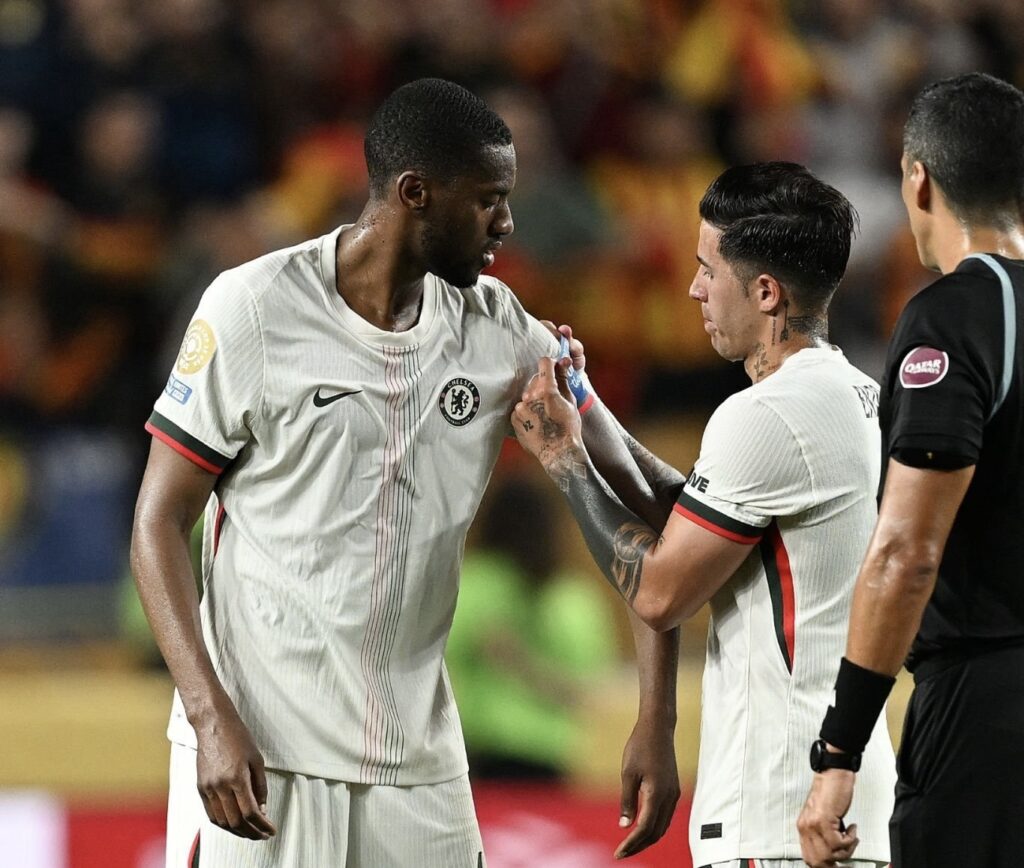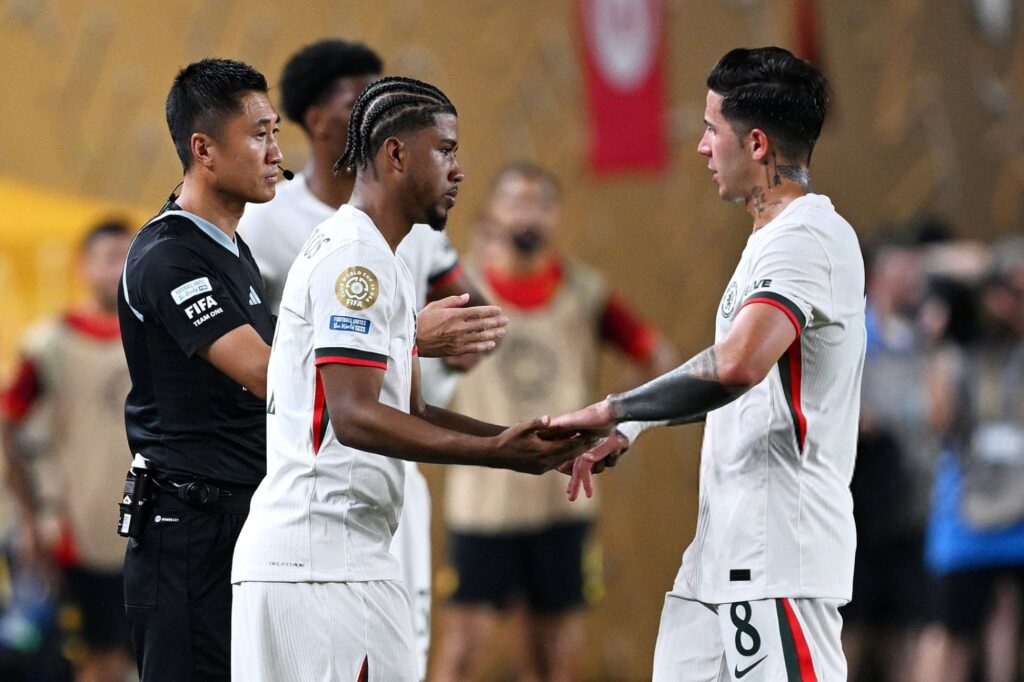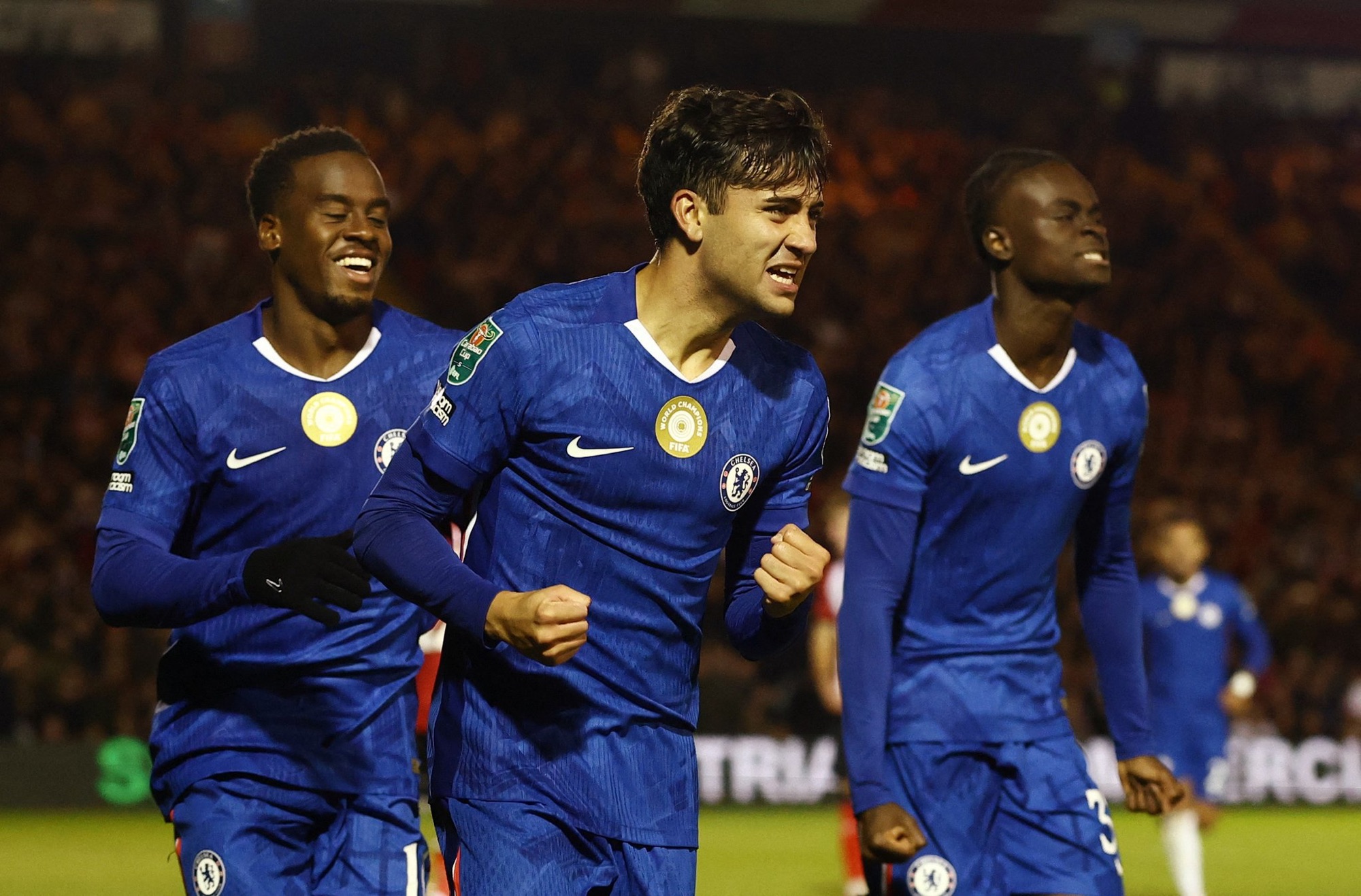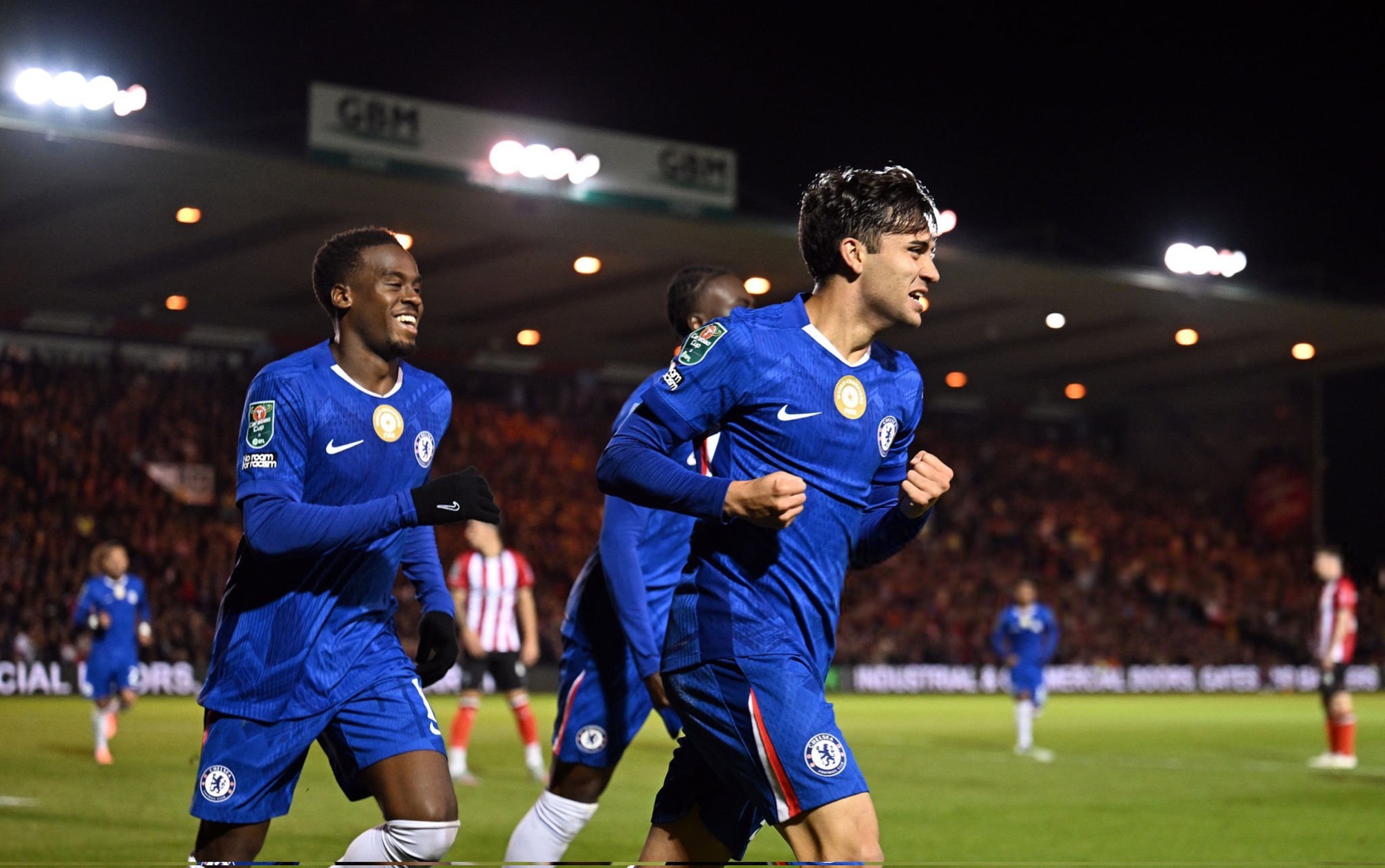Chelsea’s rotated XI cruised past Espérance De Tunis with a professional 3-0 win in their final Club World Cup group match.
With Palmer, Jackson, and Caicedo all rested, fringe players stepped up to stake a claim.
Tosin Adarabioyo led by example, Liam Delap opened his account, and Chelsea’s midfield balanced the demands of adaptation with authority in possession.
Here’s the inside look on how Chelsea won the match, with the key takeaways moving forward.
Delap’s debut strike: The kid can run – Just ask Enzo Fernandez
Liam Delap’s goal was the headline moment, but his assured off-ball intelligence may have been the most impressive thing in this match.
The 22-year-old showed confidence through his physicality and determination in attacking areas. When Chelsea were in possession, the striker was constantly making runs to create space for himself and others.
It was particularly interesting to hear him in an interview post-match where he revealed Enzo Fernández’s instruction for him to ‘when I’ve got the ball, just run,’ which might hint at Fernández’s frustration with attackers in front of him.

Having a striker who makes active, purposeful runs could be exactly what Chelsea’s often passive attack has lacked.
Adarabioyo’s Authority: Composure and control from Chelsea’s quiet leader

Tosin Adarabioyo delivered a complete performance that reflected the logic behind his summer arrival.
The 27-year-old, often referred to as the group’s elder statesman, scored Chelsea’s opener from Fernández’s 48th-minute cross with a tidy header across goal.
Tosin’s aerial dominance has quickly become a strength for Chelsea on both ends of the pitch, and the team was a relieved beneficiary of this just before half-time.
In the second half, Tosin dominated aerially and marshalled a rotated back four with confidence.
Not only that, but the former City academy graduate showed further leadership through calmness and progressive central passing.
These contributions reinforce the view that his free transfer from Fulham last summer was a shrewd piece of business from the Sporting Directors.
He is often seen as a trusted figure trusted figure for maintaining tempo and structure.
From Strasbourg to structure: Santos gets a taste of Maresca
Against the Tunisian champions, Andrey Santos showed flashes of his Ligue 1 quality last season but also struggled with Chelsea’s faster tempo.

The Brazilian midfielder entered the match at 2-0 in the 68th minute, replacing Fernández.
George, who replaced Madueke, combined with Santos for the third goal in second-half added time.
Santos won the ball aggressively in midfield, immediately playing a line-breaking pass into the feet of George, whose powerful long-range shot was fumbled into the net by goalkeeper Bechir Ben Said.
This passage of play was a glimpse of what Santos can offer and Speculation on social media about a possible sale this summer is surely misguided.
Enzo Maresca has a history of easing ‘new’ players into his systems to avoid burdening them with premature expectations.
Structure over stars: Maresca’s methods stand up despite criticism

Maresca’s rotated side didn’t just fill gaps: they delivered with structure and purpose. Madueke was lively and direct, if a little ineffective.
Nkunku, who has seen limited minutes, looked surprisingly sharp in pockets and made numerous drives into the opposition’s penalty area.
Kiernan Dewsbury-Hall gave balance from wide areas, covered ground tirelessly, and supported both phases.
Young full-back Josh Acheampong once again looked quietly effective. The 19-year-old was tidy in defensive actions, progressive in possession and calm whenever involved.
His drives from deep created multiple chances, and he has earned a stronger case for more minutes this season.
Dario Essugo also again showed promise, this time replacing Caicedo in the 59th minute, mirroring his style in defensive actions and looking comfortable on the ball.
So, despite the criticism online, many of the changes worked, and the structure provided balance and a dominance in possession.





